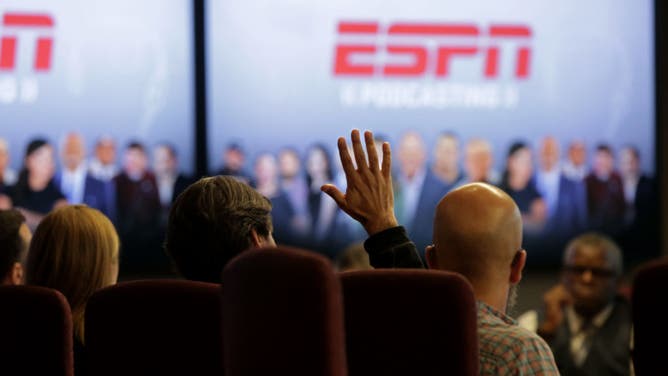ESPN Plans To Go Direct-To-Consumer With 'Flagship' As It Turns Page In Streaming Wars
ESPN plans to offer its main channel directly to consumers via a streaming project code-named "Flagship."
The platform, in development, is a contrast to ESPN+, a service that streams separate content from the ESPN cable channel.
"Flagship" would stream what airs live on ESPN -- assuming league partners sign-off come launch time -- from daily talk shows to Monday Night Football to the College Football Playoff.
ESPN would continue to offer the TV channel upon the launch of the service, whenever that may be, the Wall Street Journal first reported on Thursday.
Currently, cable subscribers pay for ESPN whether they watch the channel or not. ESPN receives some $9.42 per month of the average cable TV bill, collecting fees from providers for each customer that has access to its network.
For context, the average U.S. cable network receives just 49 cents per subscriber.
ESPN is able to charge such a fee because it drives subscribers to cable with its exclusivity of live sporting events. In short, the product further derails the need to subscribe to the likes of Comcast, DirecTV, and Dish Network.
"Flagship" should provide a cheaper alternative for consumers who subscribe to cable only to watch the NFL on Mondays.
That said, it's unclear how much ESPN plans to charge. For reference, the New York Sports affiliate MSG launched a similar streaming package last year for $30 a month.

BRISTOL, CT - NOVEMBER 15: Staff watches a presentation with Vice President of ESPN Norby Williamson, who also oversees SportsCenter, during a meeting in the executive conference room of ESPN Headquarters on November 15, 2018. (Photo by Yana Paskova/For The Washington Post via Getty Images)
Going direct to consumer is less of a luxury than it is a way for Disney to offset both cord-cutting and its rocky transition into streaming.
Last week, the company reported a loss of another 4 million subscribers for the Disney+ service during the first three months of 2023.
Disney+ ended the quarter with 157.8 million subscribers, missing Wall Street’s estimate of 163.17 million. The drop marked Disney’s first-second consecutive quarterly drop after closing 2022 with its first-ever decline.
What's more, Disney’s Hulu and ESPN+ services are barely growing.
Independent streaming services have hit a halt (other than Netflix). Thus, offering cable channels through a direct-to-consumer model could be the next chapter of the always-contentious Streaming Wars.
Suffice to say competing networks will watch the success of "Flagship" closely, particularly networks that air live sports. A network like TBS/TNT could follow suit with its rights to the NBA, All Elite Wrestling, NHL, and MLB.
Non-sports channels could, however, find a harder time going direct to consumer. There's less of a demand to view scripted programming live and news is readily available across the internet.
Lastly, the project will allow households to be more nimble than with cable. Satellite packages often require two-year commitments. Meaning, viewers cannot easily subscribe during the football season, unsubscribe in the offseason, then resubscribe the following year.
ESPN going direct-to-consumer should allow one to do so.